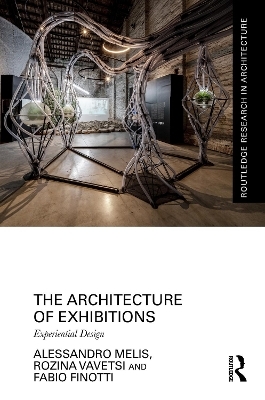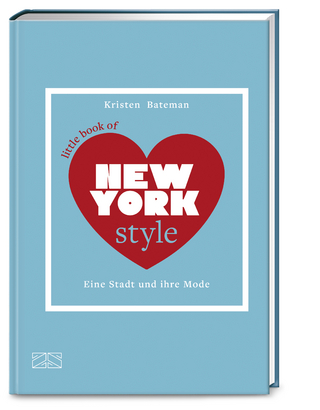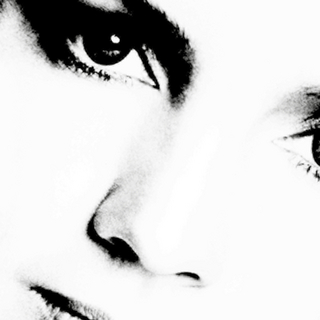
The Architecture of Exhibitions
Routledge (Verlag)
978-1-032-73629-7 (ISBN)
- Noch nicht erschienen (ca. Februar 2025)
- Versandkostenfrei innerhalb Deutschlands
- Auch auf Rechnung
- Verfügbarkeit in der Filiale vor Ort prüfen
- Artikel merken
The book challenges conventional boundaries imposed by rigid classifications, drawing on heuristic studies in biology and the transformative concept of exaptation. It questions the traditional separations between art, science and technology, which often hinder innovation. By advocating for an interdisciplinary approach, it reimagines creativity that transcends conventional limits. Through practice-based research, multidisciplinary case studies and technological innovations, with a focus on Generative AI, the book illustrates how modern exhibition spaces actively engage with their audiences, highlighting their profound impact beyond academic discourse.
This book is designed for curators, designers and scholars who are passionate about the future of exhibition spaces. It offers a comprehensive understanding through its four-part structure, making it an essential read for anyone interested in the dynamic interplay between art, technology and society. The book is also designed as an instrument for the education of architecture, design and art students.
Alessandro Melis is a distinguished architect and art curator who currently holds the prestigious position of the first Endowed Chair Professor at the New York Institute of Technology. He was appointed by the Italian Minster of Culture as the curator of the Italian Pavilion at La Biennale di Venezia in 2021 and was honored as an ambassador of Italian Design in 2020–2024 (Italian Ministry of Foreign Affairs). Rozina Vavetsi is a visual designer and associate professor in the Department of Digital Art and Design at New York Tech. With more than 20 years in higher education, Vavetsi teaches a wide variety of undergraduate and graduate graphic design courses, and she actively contributes to various academic initiatives, such as revising curricula, designing new courses, engaging in partnerships with local high schools and international universities, and serving as a liaison with the design community. Fabio Finotti, an Emeritus Professor at the University of Pennsylvania, held the prestigious Mariano DiVito Chair of Italian Literature. Additionally, Finotti's leadership extends to his role as the President of the Interuniversity Master's Degree in Italian Studies, a collaborative program between the University of Trieste and the University of Udine. Appointed by the Italian Government, Finotti is the Director of the Italian Institute of Culture in New York since 2020.
List of figures
Preface
Acknowledgements
PART 1 – A New Perspective on the Origin of Art Exhibition
Chapter 1 - The Origin of the Design of Exhibition Space
Chapter 2 - Art Exhibition from the Classic Perspective
Chapter 3 - An Historical Perspective of Architecture for Art Exhibition.
PART 2 – Present and Future Scenarios for Art Exhibition
Chapter 4 - Graphic Narratives for Social Transformation: Weaving Stories into the Built Environment
Chapter 5 - Future Developments
Chapter 6 - Community Resilience at the Venice Biennale (2021-2023)
PART 3 – Practice Based Research in Contemporary Art Exhibition
Chapter 7 - Art Exhibition: Guest Contributions, Case Studies, Professional and academic Experiences
PART 3.1 – Innovations and challenges in traditional art exhibition settings: Guest Contributions
Chapter 8 - Meta-Exhibition Designs
Anthony Caradonna
Chapter 9 - The Architecture of Exhibitions and the Exhibition of Architectures. What are we “left” with?
Giovani Santamaria
Chapter 10 - The Tyranny of Distance?
Andrew Barrie and Mike Davies
PART 3.2 – Interdisciplinary Innovations and Immersive Experiences
Chapter 11 - Components, Representations, and Pixels. Three-Dimensional Resolution through Digital Fabrication
Fadhil Fadhil
Chapter 12 - Stereoma: Crating an Immersive Spatial Experience
Dustin White
Chapter 13 - Field Notes from My Little Aurora: Close Encounters of the Robotic Kind. Enacting Human-Robot Coexistence in Everyday Life Performing Spaces
Antonino Di Raimo
Chapter 14 - Marmomac Meets Academies. The Greatest Show of Stone Experimentation
Giuseppe Fallacara, Sara D’Adamo, Clara Rosa Romano, and Maria Giovanna Pansini
Chapter 15 - Towards Non-Humans’ Embassies
Enrico Lain and Saverio Massaro
PART 3.3 – The Social, Political, And Narrative Dimension Of Art Exhibition
Chapter 16 - 416_SR1938. The Presence of Memory in the Perceptual Experience
Elena Cologni
Chapter 17 - Holier Than Thou
Lanfranco Aceti
Chapter 18 - Phygital: A Designer’s Call to Action
Jonathan Alger and Maya Koptyman
Chapter 19 - Enhancing the Sense of Place through Performative Arts: The Case of Venice
Jose Antonio Lara-Hernandez
Chapter 20 - Visual Voices: Female-Themed Murals as Community Exhibitions in the South Bronx
Barbora Melis
Chapter 21 - Gravitational Waves Architecture. Architecture as a Tool for the Transmission of Scientific Knowledge
Massimo Faiferri, Lino Cabras, Fabricio Pusceddu, Benedetta Medas and Daniel Menichini
PART 4 – Conclusion
Chapter 22 - Reflection and Conclusion on the Evolution and Innovation of Exhibition Spaces
Chapter 23 - The Handbook. Designing Exhibition Spaces
Index
| Erscheint lt. Verlag | 3.2.2025 |
|---|---|
| Reihe/Serie | Routledge Research in Architecture |
| Zusatzinfo | 3 Line drawings, black and white; 26 Halftones, black and white; 29 Illustrations, black and white |
| Verlagsort | London |
| Sprache | englisch |
| Maße | 156 x 234 mm |
| Themenwelt | Kunst / Musik / Theater ► Design / Innenarchitektur / Mode |
| Kunst / Musik / Theater ► Theater / Ballett | |
| Technik ► Architektur | |
| ISBN-10 | 1-032-73629-1 / 1032736291 |
| ISBN-13 | 978-1-032-73629-7 / 9781032736297 |
| Zustand | Neuware |
| Informationen gemäß Produktsicherheitsverordnung (GPSR) | |
| Haben Sie eine Frage zum Produkt? |
aus dem Bereich


